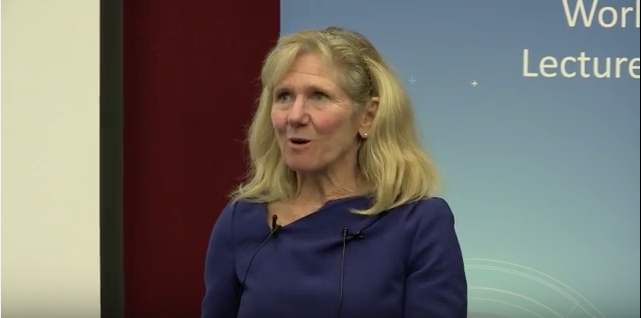Our Changing World: Ocean Futures: Balancing Blue Growth with Conservation

Our Changing World lecture by Dr Meriwether Wilson on 10th November 2015; summary by Marlena Segar, 1st year student in Social and Economic History with Environmental Studies
Of the 17 Sustainable Development goals introduced in 2015, conservation of ‘life below water’ is the 14th. Dr Wilson showed her enthusiasm that marine life had been included however the importance of the oceans to our planet imply that the emphasis on this goal should be stronger. Human activity has heavily affected at least 40% of the world’s oceans despite their being a crucial buffering system against the impacts of global warming by absorbing 30% of our CO2. Furthermore the oceans provide our biggest source of protein and are responsible, directly and indirectly, for 200 million jobs.
It was in the 19th century that the oceans’ benefits began to be explored and inevitably exploited which has led to the destruction of marine ecosystems that Dr Wilson argues is largely irreversible. For example the impacts that trawling (a method of fishing that drags a net across the seafloor, capturing everything in its path) has had on the Jamaican coral reefs has seen them permanently replaced by seaweed which has disastrous effects on both marine life and the environment.
Dr Wilson argues we now have to adapt to live with a changing ocean and there have been huge shifts in conservation that are focussing on ‘blue growth’ with investments in marine energy, introductions of novel habitats and species. However it is unclear yet whether this is actually harmful to marine environments. What is clear though, is the necessity of drastic action to save our oceans from further depletion to avoid greater habitat loss for an unknown number of species as well as a vital ecosystem to human life. During the Q&A’s Dr Wilson acknowledged that there needs to be stronger checks on industry, arguably from NGOs, to ensure further exploitation is mitigated.
Watch a recording of the lecture here.





Recent comments